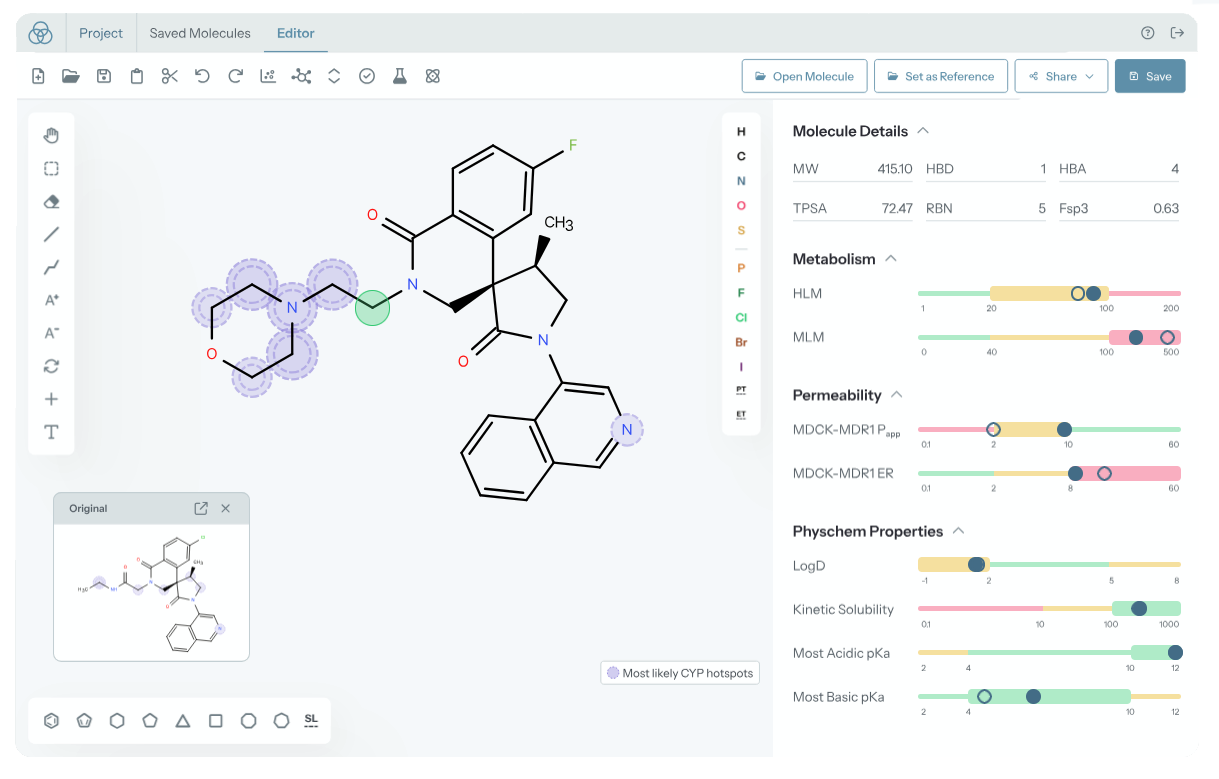Inductive Bio Raises $25M to Scale AI Platform for Predicting Drug Behavior Before Synthesis
Inductive Bio has secured $25 million in Series A financing to expand its machine learning platform for small molecule drug discovery. The round was led by Obvious Ventures, with participation from Andreessen Horowitz Bio + Health, Lux Capital, S32, Character, Amino Collective, and several angel investors including Oren Etzioni and Jakob Uszkoreit.
Proceeds from the Series A will support continued development of the consortium dataset, new model iterations, and plans to layer the offering into an AI-native contract research organization (CRO).
In small‑molecule R&D, Inductive Bio tackles the problem of balancing potency with acceptable absorption, distribution, metabolism, excretion, and toxicity (ADMET) before investing in synthesis.
The company’s workflow begins upstream with what it calls a pre‑competitive consortium—a data‑sharing arrangement in which participating drug‑discovery groups deposit anonymized ADMET assay results in a secure environment. Inductive argues that pooling thousands of experiments from unrelated programs gives its machine‑learning models a broader view of chemical space and assay variability than any single organisation could generate internally.
Those aggregated data feed Beacon‑1, a family of neural‑network models trained to forecast a panel of ADMET endpoints (e.g. microsomal stability, membrane permeability, hERG inhibition, blood–brain‑barrier penetration). The models are retrained as the dataset grows and are fine‑tuned for each partner’s chemistry to reduce domain‑shift errors.
Predictions surface in Compass, a web interface (and API) that delivers real‑time ADMET scores while chemists sketch new structures. Inductive says teams have run more than a million virtual designs through Compass, often discarding candidates with predicted liabilities before any wet‑lab work.

Inductive Bio's Compass
For projects that require wider exploration, the company offers Chemist‑in‑the‑loop AI, where a medicinal chemist works with a generative design engine that proposes large numbers of structures; the human expert filters the output into a set of ideas, closing the design–make–test–analyse loop more quickly. Inductive reports one published case (Nested Therapeutics, ACS Med. Chem. Lett.) where this process helped overcome permeability and metabolic‑stability hurdles en route to a development candidate.
With the new $25 million Series A, Inductive plans to expand the consortium dataset, iterate on Beacon‑1, and make both Compass and the chemist‑in‑the‑loop service available to a larger group of partners.
The company also recently placed first in the Polaris ADMET challenge, a blinded benchmark evaluating model performance across ADMET prediction tasks.
Topics: Startups & Deals